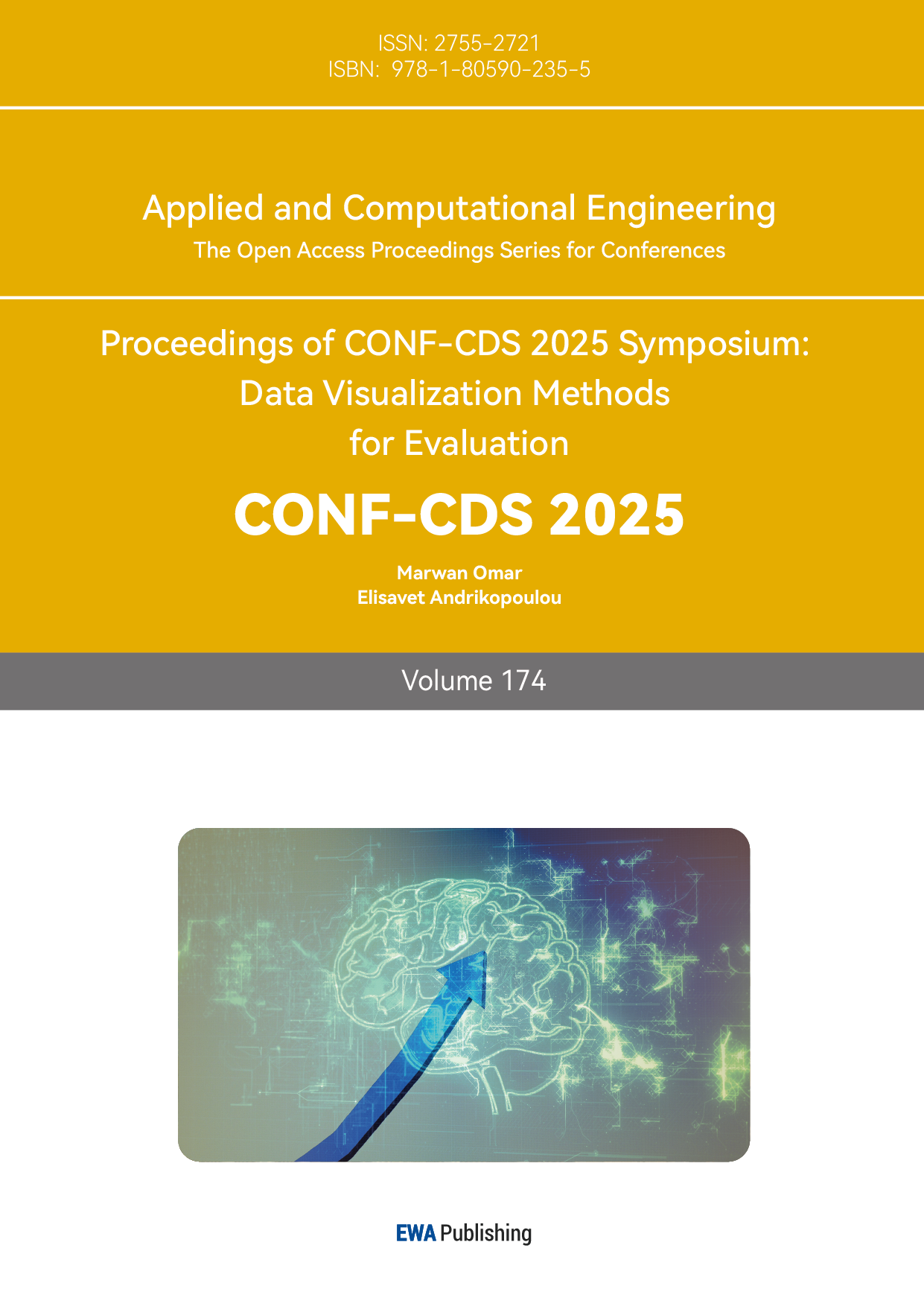References
[1]. Behzad, A. , Feldmann-Schulz, C. , Lenz, B. , Clarkson, L. , Ludwig, C. , & Luttenberger, K. , et al. (2024). Taketina music therapy for outpatient treatment of depression: study protocol for a randomized clinical trial. Journal of Clinical Medicine, 13(9), 13.
[2]. Jaschke, A. C. , Howlin, C. , Pool, J. , Greenberg, Y. D. , Atkinson, R. , & Kovalova, A. , et al. (2024). Study protocol of a randomized control trial on the effectiveness of improvisational music therapy for autistic children. BMC Psychiatry, 24(1).
[3]. A, T. R. , D, J. P. R. D. C. A. , B, E. C. , C, V. B. , C, N. B. , & B, F. X. V. , et al. A randomized controlled trial of 25 sessions comparing music therapy and music listening for children with autism spectrum disorder. Psychiatry Research, 293.
[4]. Johnston, D. , Egermann, H. , Kearney, G. , & Särkämö, Teppo. (2018). Innovative computer technology in music based interventions for individuals with autism - moving beyond traditional interactive music therapy techniques. Cogent Psychology, 5(1), 1-18.
[5]. Boussaid, S. , Majdouba, M. B. , Jriri, S. , Abbes, M. , Jammali, S. , & Ajlani, H. , et al. (2020). Fri0618-hpreffects of music therapy on pain, anxiety, and vital signs in chronic inflammatory rheumatic diseases patients during biological drugs infusion. Annals of the Rheumatic Diseases, 79(Sup1), 1.
[6]. Colin, C., Prince, V., Bensoussan, J. L., & Picot, M. C. (2023). Music therapy for health workers to reduce stress, mental workload and anxiety: a systematic review. Journal of Public Health, 45(3), e532-e541.
[7]. Rajendran, T. (2022). Addressing the need for personalizing music therapy in integrative oncology. Journal of Integrative Medicine, 20(4), 281-283.
[8]. Su, Y., Liu, Y., Xiao, Y., Ma, J., & Li, D. (2024). A review of artificial intelligence methods enabled music-evoked EEG emotion recognition and their applications. Frontiers in Neuroscience, 18, 1400444.
[9]. Nunes, I. B., de Santana, M. A., Charron, N., Silva, H. S. E., de Lima Simões, C. M., Lins, C., ... & dos Santos, W. P. (2024). Automatic identification of preferred music genres: an exploratory machine learning approach to support personalized music therapy. Multimedia Tools and Applications, 83(35), 82515-82531.
[10]. Chen, J., Pan, F., Zhong, P., He, T., Qi, L., Lu, J., ... & Zheng, Y. (2020). An automatic method to develop music with music segment and long short term memory for tinnitus music therapy. IEEE Access, 8, 141860-141871.
[11]. Wang, Z., Guan, X., Li, E., & Dong, B. (2024). A study on music therapy aimed at psychological trauma recovery for bereaved families driven by artificial intelligence. Frontiers in Psychology, 15, 1436324.
[12]. Rahman, J. S., Gedeon, T., Caldwell, S., Jones, R., & Jin, Z. (2021). Towards effective music therapy for mental health care using machine learning tools: human affective reasoning and music genres. Journal of Artificial Intelligence and Soft Computing Research, 11(1), 5-20.
[13]. Choi, S., Park, J. I., Hong, C. H., Park, S. G., & Park, S. C. (2024). Accelerated construction of stress relief music datasets using CNN and the Mel-scaled spectrogram. PloS one, 19(5), e0300607.
[14]. Chen, J., Han, J., Su, P., & Zhou, G. (2025). Framework for Groove Rating in Exercise-Enhancing Music Based on a CNN–TCN Architecture with Integrated Entropy Regularization and Pooling. Entropy, 27(3), 317.
[15]. Zhang, Y., Zhang, C., Cheng, L., & Qi, M. (2022). The use of deep learning-based gesture interactive robot in the treatment of autistic children under music perception education. Frontiers in Psychology, 13, 762701.



